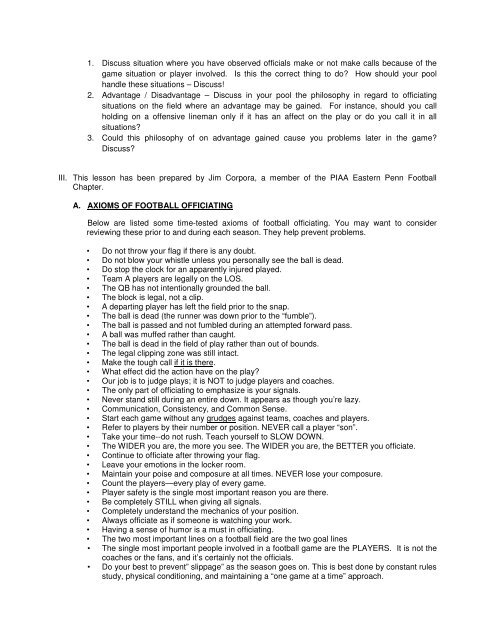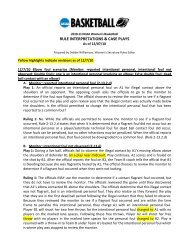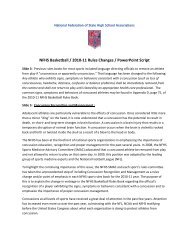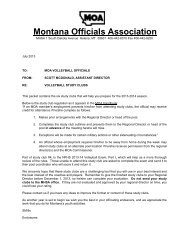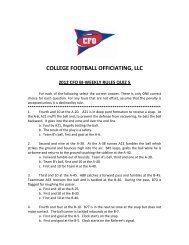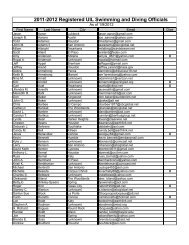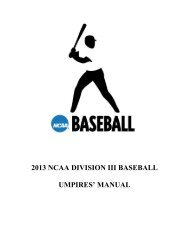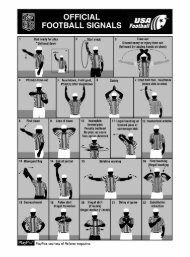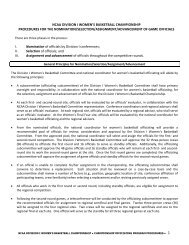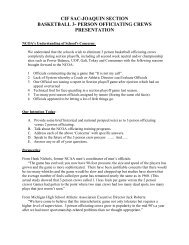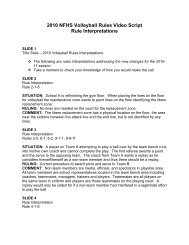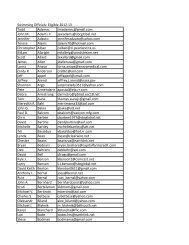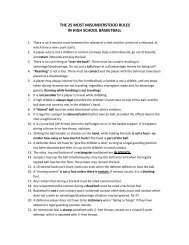Montana Officials Association - MOA - ArbiterSports
Montana Officials Association - MOA - ArbiterSports
Montana Officials Association - MOA - ArbiterSports
You also want an ePaper? Increase the reach of your titles
YUMPU automatically turns print PDFs into web optimized ePapers that Google loves.
1. Discuss situation where you have observed officials make or not make calls because of thegame situation or player involved. Is this the correct thing to do? How should your poolhandle these situations – Discuss!2. Advantage / Disadvantage – Discuss in your pool the philosophy in regard to officiatingsituations on the field where an advantage may be gained. For instance, should you callholding on a offensive lineman only if it has an affect on the play or do you call it in allsituations?3. Could this philosophy of on advantage gained cause you problems later in the game?Discuss?III. This lesson has been prepared by Jim Corpora, a member of the PIAA Eastern Penn FootballChapter.A. AXIOMS OF FOOTBALL OFFICIATINGBelow are listed some time-tested axioms of football officiating. You may want to considerreviewing these prior to and during each season. They help prevent problems.• Do not throw your flag if there is any doubt.• Do not blow your whistle unless you personally see the ball is dead.• Do stop the clock for an apparently injured played.• Team A players are legally on the LOS.• The QB has not intentionally grounded the ball.• The block is legal, not a clip.• A departing player has left the field prior to the snap.• The ball is dead (the runner was down prior to the “fumble”).• The ball is passed and not fumbled during an attempted forward pass.• A ball was muffed rather than caught.• The ball is dead in the field of play rather than out of bounds.• The legal clipping zone was still intact.• Make the tough call if it is there.• What effect did the action have on the play?• Our job is to judge plays; it is NOT to judge players and coaches.• The only part of officiating to emphasize is your signals.• Never stand still during an entire down. It appears as though you’re lazy.• Communication, Consistency, and Common Sense.• Start each game without any grudges against teams, coaches and players.• Refer to players by their number or position. NEVER call a player “son”.• Take your time--do not rush. Teach yourself to SLOW DOWN.• The WIDER you are, the more you see. The WIDER you are, the BETTER you officiate.• Continue to officiate after throwing your flag.• Leave your emotions in the locker room.• Maintain your poise and composure at all times. NEVER lose your composure.• Count the players—every play of every game.• Player safety is the single most important reason you are there.• Be completely STILL when giving all signals.• Completely understand the mechanics of your position.• Always officiate as if someone is watching your work.• Having a sense of humor is a must in officiating.• The two most important lines on a football field are the two goal lines• The single most important people involved in a football game are the PLAYERS. It is not thecoaches or the fans, and it’s certainly not the officials.• Do your best to prevent” slippage” as the season goes on. This is best done by constant rulesstudy, physical conditioning, and maintaining a “one game at a time” approach.


